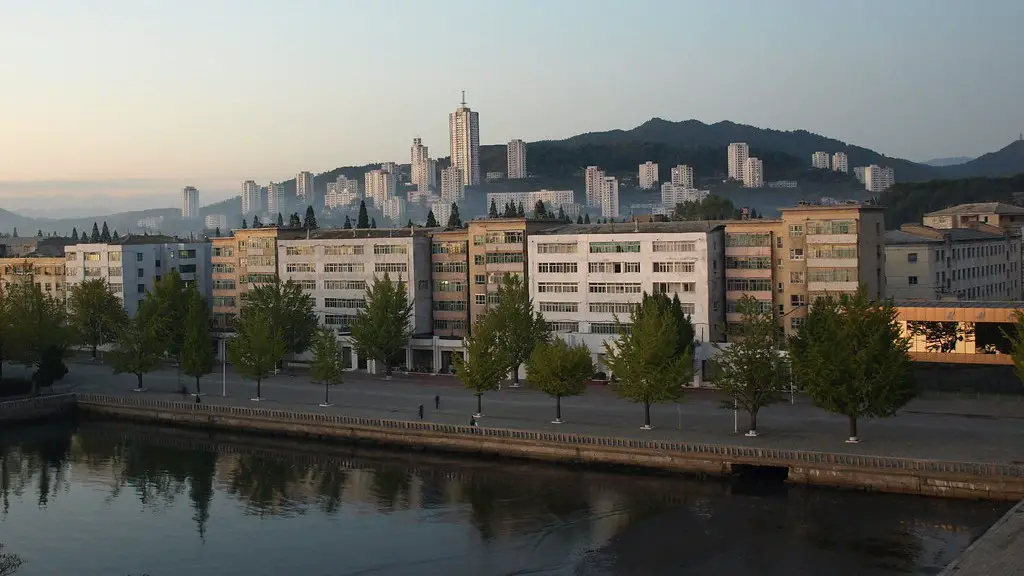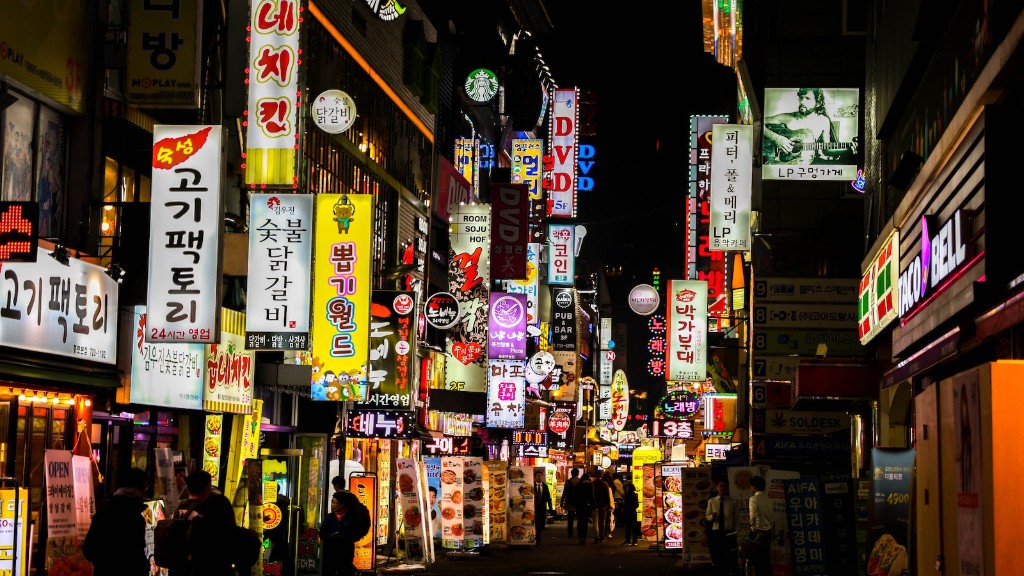Kim Il-Sung
Kim Il-Sung was the first leader of North Korea. He assumed office in 1948, shortly after the establishment of the Democratic People’s Republic of Korea. He was an anti-imperialist leader who sought to promote an independent Korean identity, as well as strongly promote a self-reliant economy that focused on industrial development and the production of consumer goods. Kim Il-Sung’s most noteworthy policy was the Juche ideology, a socialist ideology characterized by Korea’s independence and self-reliance. During his long tenure as leader, he argued for stronger ties with the Soviet Union and China, and launched the first three-year economic plan which resulted in remarkable economic gains. Kim Il-Sung died in 1994, and was succeeded by his son, Kim Jong-Il.
Kim Jong-Il
Kim Jong-Il assumed the leadership of North Korea in 1994, continuing his father’s policies of a self-reliant economy and vertical integration of the government. He further pushed to develop the nation’s nuclear arsenal, and acquired necessary resources through various means, such as forging ties with Russia and foreign aid. During his tenure, he also implemented policy reforms, such as the July 2002 law, which allowed for greater economic autonomy for enterprises. However, his rule was marred by human rights abuses, poverty, and malnutrition, as well as an authoritarian government which oppressed political opposition. Following his death in December 2011, Kim Jong-il’s third son, Kim Jong-Un assumed power in North Korea.
Kim Jong-Un
Kim Jong-Un assumed power in North Korea following his father’s death in 2011. Since his rise to power, Kim Jong-Un has sought to improve North Korea’s image abroad and raise its standing on the international stage. Notably, he held the first of three summit meetings with the United States in 2018, which aimed to reduce nuclear tensions between the two countries and increase diplomatic interactions. During his time in office, Kim Jong-un has also pushed for a renewed emphasis on economic development and launched various public works projects, such as the Ryomyong residential area, in addition to launching crop restructuring and widespread production of consumer goods. Kim Jong-Un has also put forth his own philosophy of a strong and independent North Korea.
Foreign Relations
Under the rule of Kim Il-Sung, North Korea forged strong ties with the Soviet Union and China. Kim Il-Sung heavily relied on both countries for resources, such as crucial supplies and military assistance, in order to maintain North Korea’s independence and autonomy. In addition, North Korea also maintained close ties with other socialist states, such as Cuba and Vietnam. However, foreign relations posed a challenge for Kim Jong-il, as the collapse of the Soviet Union meant that North Korea had to deal with political isolation and a lack of economic assistance. Nonetheless, North Korea maintained strong ties with China, which provided the nation with diplomatic recognition and financial support.
Economy
North Korea has developed its economy along a self-sustaining path, with the government controlling the majority of economic activities and promoting the production of consumer goods. The nation went through several three-year economic plans under the rule of Kim Il-Sung and Kim Jong-Il, which resulted in remarkable progress in terms of industrialization, modernizing infrastructure, and the acquisition of resources. However, North Korea experienced a major economic downturn in the 1990s, as a result of the collapse of the Soviet Union and the imposition of U.S. sanctions. North Korea’s economy remains heavily reliant on foreign aid, particularly from China, and persists in facing economic hardships.
Human Rights
North Korea has a long history of human rights abuses, with its citizens subject to various forms of forced labor, repressed freedom of expression, forced disappearances, and an authoritarian political structure. In recent years, the government has tightened control over its people, restricting any forms of dissent, while also maintaining a policy of complete censorship of foreign media and the internet. Civil society organizations, such as the International Campaign to Stop the Korean War, have campaigned for the abolition of North Korea’s human rights violations and advocated for greater international pressure on the North Korean government.
Culture and Society
North Korea is a highly structured and hierarchical society, with the ruling family at the apex of power and privilege. Traditional Korean values are highly revered, and the country’s culture continues to be strongly influenced by Confucianism and Buddhism. Family relationships, Confucian ideals, and loyalty to the ruling family are valued by North Koreans and form the basis of many aspects of North Korean society. North Korea also prides itself on its distinct and unique culture and has developed many forms of traditional arts and music, such as traditional Korean court music.
Political Structure
North Korea is a single-party state, ruled by the Workers’ Party of Korea. The Party’s Central Committee is the highest decision-making body, while the Politburo is the executive party organization. The country’s government is highly centralized and controlled by the ruling family, with much of the policy and decision-making process coming from the top. The presidency is the highest elected office in the country and the President holds broad executive and legislative powers. The Supreme People’s Assembly, which is the de jure legislature, is constitutionally subservient to the President and serves mainly in a symbolic capacity.
Military
The North Korean military consists of the Korean People’s Army, with the army, navy, and air force as its main components. The military has been described as one of the largest in the world, with over 1 million personnel and a formidable arsenal, including nuclear weapons. North Korea has employed its military as a strategic tool, engaging in a series of provocations in recent years, such as test-firing missiles, closing access to the joint-industrial zone in Kaesong, and conducting military drills in the Yellow Sea. As a result, the international community has condemned North Korea’s military activities and has imposed various sanctions in response.
International Reception
The international community’s attitude towards North Korea has been largely negative, largely due to its many violations of international law and its willingness to engage in provocations. The United Nations Security Council has imposed various economic sanctions to dissuade North Korea from developing its nuclear arsenal and pushing for the denuclearization of the Korean Peninsula. Nonetheless, some nations, such as China, have sought to engage with North Korea, while certain nations, such as South Korea, have sought to improve diplomatic relations.


